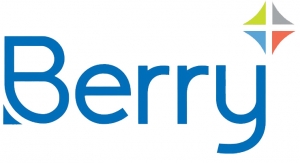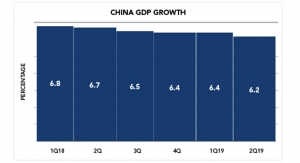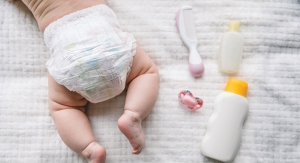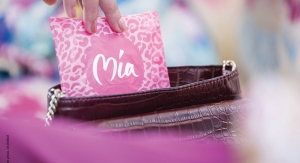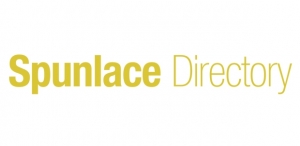Karen McIntyre, editor10.13.15
The countries of Southeast Asia have been experiencing an investment boom during the last decade as nonwovens producers have followed hygiene manufacturers’ expansion into these markets. While new lines for nonwovens have slowed down in Japan—with just one being added since 2003—and, to a lesser extent, in China, investment in countries like Malaysia, Thailand and Indonesia has continued.
Still, these countries are very different, in terms of consumer preference, penetration levels and disposable income growth, according to industry observers, as they are all in different stages of their development.
“Malaysia is the most advanced from a consumer perspective—it’s probably as close to the first world as you see in this region, while Indonesia is the most emerging with the lowest penetration levels in the area,” says Johan Hommersom, regional sales manager for
Bostik, southeast Asia-Pacific. “Thailand is somewhere in the middle.”
Indeed, the most recent focus of investment has been on Indonesia, where Toray Industries has recently announced it would add a second spunmelt line to fuel hygiene growth and companies like JNC and Daiwabo have started making thermal bonded nonwovens in recent years.
According to industry statistics, the baby diaper penetration in Indonesia was only 19% in 2014 but with a high infant population and their GDP growth rate for 2015 is forecasted at 5.9%. This makes Indonesia one of the top three hot spots for growth in the world for baby diapers. It is also forecast that diaper consumption will go from roughly 3600 million units to roughly 6800 million units by 2019.
In the world of feminine care, forecasters predict that consumption of pads and pantyliners in Indonesia will go from roughly 9000 million units to roughly 15,700 million units by 2019.
The rising disposable incomes and population growth of females ages 12-54 is driving the increases in feminine care pad usage.
However, Malaysian investment has proven to be a great fit for Denmark’s Fibertex Nonwovens. Growth coming out of Malaysia is outpacing Fibertex Nonwovens’ European operation and the company has credited much of its success in recent years to the region. Meanwhile, many of Japan’s nonwovens leaders have chosen Thailand for the Asian homebase and have put more investment dollars in this country than they have in their local market.
While China is by far the largest Asian nonwovens producer, accounting for about 67% of total output, increased focus on these countries is changing the production landscape. Currently, Fibertex Personal Care probably has the largest nonwovens operation in the region. This company has chosen to stay clear of Chinese investment, opting instead to continue to add lines in Malaysia. Meanwhile, Toray Industries, which is probably one of the biggest Asian producers of spunmelt nonwovens has continued to invest in China and Indonesia simultaneously, and the Japanese leaders have looked to Thailand, where market sophistication is somewhere between Malaysia and the less developed Indonesia, for growth opportunities.
Fibertex Personal Care
Aalborg, Denmark
ASEAN Capacity: 70,000 tons (spunmelt)
Plant Location: Malaysia
Denmark’s Fibertex Personal Care was a trailblazer in Southeast Asia. Probably the European company with the largest presence in the region, Fibertex Personal Care established its Malaysian operation in 2003 and invested considerably there since then. In 2004, the site’s fourth line came onstream, bringing its total capacity to 70,000 tons, and executives have repeatedly cited this operation as a key growth driver for the company as a whole.
And, sales in Malaysia are outpacing sales from the company’s other operation in Denmark, where it currently has three production lines, the most recent of which was added several years ago.
In 2014, sales from the Malaysian operation increased from DKK755 million ($113 million) to DKK922 million ($138 million) thanks largely to the completion of the fourth line. Meanwhile, Danish sales increased too, but more slightly, from DKK799 million ($120 million) to DKK865 million ($129 million).
Fibertex executives have described the Malaysian site as a driver in healthy revenue improvements and have cited Southeast Asia as a key gateway for capitalizing on profitable growth throughout Asia. The company reportedly serves all of Asia, including India, from this facility.
Last year, Fibertex further boosted in Asian operations with the establishment of sales offices in Japan and India.
This year, Fibertex announced plans to broaden its Malaysian footprint in a new way. The company’s subsidiary Innowo Print said it would establish an operation there to meet growing Asian demand for printed nonwovens. Fibertex bought remaining shares in Innowo Print, a company it helped found in 2007, earlier this year when its original partners decided to no longer pursue the business.
Toray Advanced Materials
Seoul, Korea
ASEAN Capacity: 36,000 tons
Plant Location: Indonesia
Sales at Toray Advanced Materials have increased steadily in recent years as the company has invested ambitiously in its Asian assets. The Korean company currently has the largest nonwovens plant (in volume terms) in China, capable of making 80,000 tons of material on four lines. This site was established in 2006 and last year Chinese sales increased 10%.
Meanwhile, in Southeast Asia, Toray established a spunbond operation in Jakarta in 2013 and has already announced plans for line number two at the site. This new line, which will bring Toray’s Indonesian capacity to 36,000 tons when complete, should be up and running by the end of next year.
“The ASEAN region is one of our most important and strategic markets, and Indonesia is the biggest market in the ASEAN region,” spokesman Evan Lee says. “The Philippines, Malaysia and Vietnam market is our next target market in the ASEAN region after Indonesia.”
With the Asian market for polypropylene spunbond nonwovens expected to increase from 660,000 tons in 2016 to 936,000 tons in 2020–due to both explosive baby diaper needs in emerging ASEAN countries and adult diaper needs in Korea—the hygiene market is a good one to be in and much of Toray’s output in this region targets these markets.
“The Asian hygiene market is a good market in nonwovens with strong and stable growth, but many nonwovens companies focus on supplying their products to major diaper companies to aggressively expand their capacity, therefore sales are growing but the profits not so much,” Lee says. “We have a long-term investment plan in Asia and we are considering our next investment consistent with this.”
While Toray has focused heavily on the hygiene market for growth in Asia, within its domestic market of Korea, its product portfolio is more diverse targeting hygiene, medical, industrial, household goods, filters, agriculture, construction and geotextiles. Lee describes this market as stable, but not growing.
And, even with six new lines in Asia already, Toray executives have hinted that another Asian operation, in a yet-to-be-determined country, will soon be in the works.
Asahi Kasei
Osaka, Japan
ASEAN Capacity: 40,000 tons (spunmelt)
Plant Location: Thailand
Japanese nonwovens producers have been looking at Southeast Asia for a more affordable production base for sometime. Asahi Kasei has made spunbond nonwovens in Thailand since 2012 and is about to double its output from 20,000 tons to 40,000 tons with the addition of a second line later this year. And, a third line will reportedly be added in the 2016-2017 timeframe if the industry rumormill is to be believed.
Mitsui Chemical
Osaka, Japan
ASEAN Capacity: 15,000 tons (spunmelt)
Plant Location: Thailand
Mitsui Chemical also has its own Thai operation—also dedicated to the production of spunbond nonwovens for hygiene applications. The company’s current capacity in the region is 30,000 tons and it is one of three Asian operations for Mitsui. The company also operates a one-line site in China, capable of making 15,000 tons per year, and a Japanese facility, which was recently expanded to be capable of making 49,000 tons of material per year.
About 80% of Mitsui’s nonwoven products are used for diapers, with the high quality polypropylene spunbond nonwovens being used in Japan, but Mitsui is starting to see greater demand for high quality polypropylene spunbond in China as there has been demand for high functioning diapers there. Because of this, Mitsui Chemicals plans to improve its equipment in China to produce high quality nonwovens. Although it’s planning to start a new line for polypropylene spunbond in 2017, the company has not yet decided which country to set up the industrial plant.
Mitsui’s expansion strategy, outside of diapers, includes medical materials, industrial materials and agricultural materials. In the medical sector, it is going to strengthen its gowns for surgery with spunbond or meltblown nonwovens, and in the industrial materials sector, filters by nanofiber nonwovens will be strengthened. Mitsui Chemicals has also introduced Syntex Nano, meltblown nanofiber nonwovens, for liquid filters.
According to Mitsui, demand for diapers and other sanitary napkins has increased in China and other Asian countries and these Japanese companies have come to rely on cheaper labor sources in overseas locations. Also driving this trend is the establishment of hygiene producers in these areas.
Unitika
Tokyo, Japan
ASEAN capacity: 10,000 tons (PET spunbond)
Plant Location: Thailand
In January 2014, Unitika announced a plan to increase capacity of its polyester spunbond nonwovens facility in Thailand to 10,000 tons. According to Tesuya Yoshimura, a spokesman for the company’s nonwovens division, the new capacity will be coming onstream in 2017.
The company had been making 4500 tons of the material in Thailand per year since 2005 and decided to add the second plant to increase its scope in the region. Yoshimura says his company is one of the largest producers of PET spunbond in the region, and the expansion will not only meet demand for the materials in Southeast Asia but will also reinforce Unitika’s export business to China and the U.S. The lines’ main targets are carpet backings, geotextiles, construction, automotives, agriculture and other industrial substrates.
Unitika also makes 20,000 tons of polyester spunbond in Japan as well as 5000 tons of spunlaced cotton nonwovens targeting hygiene, medical and healthcare applications.
Tapyrus
Tokyo, Japan
ASEAN capacity: not disclosed (meltblown)
Plant Location: Thailand
Since 1987, Japan’s Tapyrus has been providing high quality meltblown nonwovens to customers in a range of markets. “Our goal has been to manufacture products in order to suit our customers’ individual needs, and we have been improving technology day by day,” says company president Yasu Takenaka. “In business, there are things which should remain unchanged. The key one is our offering products tailored to our customer’s needs and we have been endeavoring to make technological improvements to achieve this ambition.”
Based in Tokyo, Tapyrus was established in 1987 by Tonen Chemical, an affiliate of Exxon Chemical, the company that developed the meltblown process in the mid 1960s and commercialized it in 1974. In 2003, the operation was spun-off from Tonen and renamed Tapyrus Co., Ltd.
The company makes meltblown nonwovens using a number of raw materials including polypropylene, nylon, PBT, PPS, PEEK and PLA and provides an array of products in fiber diameters ranging from 0.5—30um and basis weight variations from 7-400 gsm. The company offers a unique operation control technique that provides webs with high uniformity.
“With its own in-house developed technology, Tapyrus offers specialized grades that can conform to each application,” explains spokesman Yuichi Komuro.
Products are currently used in a number of application areas including liquid filters, air filters, face masks, battery separators, coalescers, water purifiers, automotive filters, acoustics, wipes and medical products. All of its nonwovens are self-binding, meaning they do not use binders and are non-toxic and safe.
In late 2011, Tapyrus announced it would start up a subsidiary in Thailand to help aid a customer expand into southeast Asia. The company began manufacturing and selling nonwovens at the new site near Bangkok in spring 2013. The $2.5 million (70 million Baht) investment has also helped strengthen Tapyrus’ supply system within Japan and Thailand.
JNC Corporation (formerly Chisso Corporation)
Tokyo, Japan
ASEAN Capacity: 4800 tons (thermal bonded)
Plant location: Rayong, Thailand
In 2013, JNC Corporation announced it would establish a sales and manufacturing company for air-through nonwovens in Rayong, Thailand, through its subsidiary JNC Fibers Corporation. The new site—which came after requests from several hygiene-related customers—was intended to increasing demands for hygiene products in Southeast Asia. Additionally, the new site will target emerging markets in India and the Middle East.
JNC has been producing bicomponent fibers and nonwoven fabrics in Guangzhou, China, since 1995 and started up a new nonwovens facility in Changshu, China, in early 2012 to address increasing demand in the Chinese hygiene market.
JNC also has a partnership with FiberVisions Corporation (USA) and is selling ES Fibers through ES FiberVisions, a sales joint venture of bicomponent fibers that operates worldwide. Following the purchase of Fibervisions by Indorama Ventures PLC (Thailand), the largest polyester producer in the world, JNC has formed a strategic partnership with this company and expects this partnership to growth along with the market.
Daiwabo
Headquarters: Osaka, Japan
ASEAN capacity: 2400 tons (thermal bonded)
Plant Location: Indonesia
In 2012, Japan’s Daiwabo announced it would establish a new company to make air-through thermal bonded nonwoven fabrics to serve hygiene markets in Indonesia. After making and selling polypropylene fibers since 1964 in Japan and expanding into a number of types of nonwovens technologies including a variety of nonwoven fabrics using fibers such as heat-bondable composite fibers and split-type composite fibers.
Before starting Indonesian nonwovens production, the company already sold raw cotton manufactured at its Japanese plant, but astonishing economic growth as well as potential in disposable markets influenced the company to forward integrate into nonwovens production.
In particular, the company had noticed remarkable growth in Indonesia in hygienic goods, such as disposable diapers and sanitary napkins due to the expansion in the new middle class. Because this growth is expected to continue, Daiwabo decided to establish a site in the region.
According to executives, the company considers its nonwoven fabric business as a strategically important market in the ASEAN region and has been using the Indonesian operation as an export base to the entire ASEAN region and has used this opportunity to expand facilities and develop the business.
In an effort to boost sales, Daiwabo has used the group sales network of Daiwabo Hong Kong Co., Ltd. to fuel growth in the region. In terms of its infrastructure, it has relied on the knowledge of local operating group companies including Daiwabo Jakarta Office.
The company has also made full use of its strength in integrated production from fiber raw materials through nonwoven fabrics, promoting further development from hygienic goods into related markets, and working hard to expand its nonwoven fabric business with a view to the creation of downstream businesses.
Still, these countries are very different, in terms of consumer preference, penetration levels and disposable income growth, according to industry observers, as they are all in different stages of their development.
“Malaysia is the most advanced from a consumer perspective—it’s probably as close to the first world as you see in this region, while Indonesia is the most emerging with the lowest penetration levels in the area,” says Johan Hommersom, regional sales manager for
Bostik, southeast Asia-Pacific. “Thailand is somewhere in the middle.”
Indeed, the most recent focus of investment has been on Indonesia, where Toray Industries has recently announced it would add a second spunmelt line to fuel hygiene growth and companies like JNC and Daiwabo have started making thermal bonded nonwovens in recent years.
According to industry statistics, the baby diaper penetration in Indonesia was only 19% in 2014 but with a high infant population and their GDP growth rate for 2015 is forecasted at 5.9%. This makes Indonesia one of the top three hot spots for growth in the world for baby diapers. It is also forecast that diaper consumption will go from roughly 3600 million units to roughly 6800 million units by 2019.
In the world of feminine care, forecasters predict that consumption of pads and pantyliners in Indonesia will go from roughly 9000 million units to roughly 15,700 million units by 2019.
The rising disposable incomes and population growth of females ages 12-54 is driving the increases in feminine care pad usage.
However, Malaysian investment has proven to be a great fit for Denmark’s Fibertex Nonwovens. Growth coming out of Malaysia is outpacing Fibertex Nonwovens’ European operation and the company has credited much of its success in recent years to the region. Meanwhile, many of Japan’s nonwovens leaders have chosen Thailand for the Asian homebase and have put more investment dollars in this country than they have in their local market.
While China is by far the largest Asian nonwovens producer, accounting for about 67% of total output, increased focus on these countries is changing the production landscape. Currently, Fibertex Personal Care probably has the largest nonwovens operation in the region. This company has chosen to stay clear of Chinese investment, opting instead to continue to add lines in Malaysia. Meanwhile, Toray Industries, which is probably one of the biggest Asian producers of spunmelt nonwovens has continued to invest in China and Indonesia simultaneously, and the Japanese leaders have looked to Thailand, where market sophistication is somewhere between Malaysia and the less developed Indonesia, for growth opportunities.
Fibertex Personal Care
Aalborg, Denmark
ASEAN Capacity: 70,000 tons (spunmelt)
Plant Location: Malaysia
Denmark’s Fibertex Personal Care was a trailblazer in Southeast Asia. Probably the European company with the largest presence in the region, Fibertex Personal Care established its Malaysian operation in 2003 and invested considerably there since then. In 2004, the site’s fourth line came onstream, bringing its total capacity to 70,000 tons, and executives have repeatedly cited this operation as a key growth driver for the company as a whole.
And, sales in Malaysia are outpacing sales from the company’s other operation in Denmark, where it currently has three production lines, the most recent of which was added several years ago.
In 2014, sales from the Malaysian operation increased from DKK755 million ($113 million) to DKK922 million ($138 million) thanks largely to the completion of the fourth line. Meanwhile, Danish sales increased too, but more slightly, from DKK799 million ($120 million) to DKK865 million ($129 million).
Fibertex executives have described the Malaysian site as a driver in healthy revenue improvements and have cited Southeast Asia as a key gateway for capitalizing on profitable growth throughout Asia. The company reportedly serves all of Asia, including India, from this facility.
Last year, Fibertex further boosted in Asian operations with the establishment of sales offices in Japan and India.
This year, Fibertex announced plans to broaden its Malaysian footprint in a new way. The company’s subsidiary Innowo Print said it would establish an operation there to meet growing Asian demand for printed nonwovens. Fibertex bought remaining shares in Innowo Print, a company it helped found in 2007, earlier this year when its original partners decided to no longer pursue the business.
Toray Advanced Materials
Seoul, Korea
ASEAN Capacity: 36,000 tons
Plant Location: Indonesia
Sales at Toray Advanced Materials have increased steadily in recent years as the company has invested ambitiously in its Asian assets. The Korean company currently has the largest nonwovens plant (in volume terms) in China, capable of making 80,000 tons of material on four lines. This site was established in 2006 and last year Chinese sales increased 10%.
Meanwhile, in Southeast Asia, Toray established a spunbond operation in Jakarta in 2013 and has already announced plans for line number two at the site. This new line, which will bring Toray’s Indonesian capacity to 36,000 tons when complete, should be up and running by the end of next year.
“The ASEAN region is one of our most important and strategic markets, and Indonesia is the biggest market in the ASEAN region,” spokesman Evan Lee says. “The Philippines, Malaysia and Vietnam market is our next target market in the ASEAN region after Indonesia.”
With the Asian market for polypropylene spunbond nonwovens expected to increase from 660,000 tons in 2016 to 936,000 tons in 2020–due to both explosive baby diaper needs in emerging ASEAN countries and adult diaper needs in Korea—the hygiene market is a good one to be in and much of Toray’s output in this region targets these markets.
“The Asian hygiene market is a good market in nonwovens with strong and stable growth, but many nonwovens companies focus on supplying their products to major diaper companies to aggressively expand their capacity, therefore sales are growing but the profits not so much,” Lee says. “We have a long-term investment plan in Asia and we are considering our next investment consistent with this.”
While Toray has focused heavily on the hygiene market for growth in Asia, within its domestic market of Korea, its product portfolio is more diverse targeting hygiene, medical, industrial, household goods, filters, agriculture, construction and geotextiles. Lee describes this market as stable, but not growing.
And, even with six new lines in Asia already, Toray executives have hinted that another Asian operation, in a yet-to-be-determined country, will soon be in the works.
Asahi Kasei
Osaka, Japan
ASEAN Capacity: 40,000 tons (spunmelt)
Plant Location: Thailand
Japanese nonwovens producers have been looking at Southeast Asia for a more affordable production base for sometime. Asahi Kasei has made spunbond nonwovens in Thailand since 2012 and is about to double its output from 20,000 tons to 40,000 tons with the addition of a second line later this year. And, a third line will reportedly be added in the 2016-2017 timeframe if the industry rumormill is to be believed.
Mitsui Chemical
Osaka, Japan
ASEAN Capacity: 15,000 tons (spunmelt)
Plant Location: Thailand
Mitsui Chemical also has its own Thai operation—also dedicated to the production of spunbond nonwovens for hygiene applications. The company’s current capacity in the region is 30,000 tons and it is one of three Asian operations for Mitsui. The company also operates a one-line site in China, capable of making 15,000 tons per year, and a Japanese facility, which was recently expanded to be capable of making 49,000 tons of material per year.
About 80% of Mitsui’s nonwoven products are used for diapers, with the high quality polypropylene spunbond nonwovens being used in Japan, but Mitsui is starting to see greater demand for high quality polypropylene spunbond in China as there has been demand for high functioning diapers there. Because of this, Mitsui Chemicals plans to improve its equipment in China to produce high quality nonwovens. Although it’s planning to start a new line for polypropylene spunbond in 2017, the company has not yet decided which country to set up the industrial plant.
Mitsui’s expansion strategy, outside of diapers, includes medical materials, industrial materials and agricultural materials. In the medical sector, it is going to strengthen its gowns for surgery with spunbond or meltblown nonwovens, and in the industrial materials sector, filters by nanofiber nonwovens will be strengthened. Mitsui Chemicals has also introduced Syntex Nano, meltblown nanofiber nonwovens, for liquid filters.
According to Mitsui, demand for diapers and other sanitary napkins has increased in China and other Asian countries and these Japanese companies have come to rely on cheaper labor sources in overseas locations. Also driving this trend is the establishment of hygiene producers in these areas.
Unitika
Tokyo, Japan
ASEAN capacity: 10,000 tons (PET spunbond)
Plant Location: Thailand
In January 2014, Unitika announced a plan to increase capacity of its polyester spunbond nonwovens facility in Thailand to 10,000 tons. According to Tesuya Yoshimura, a spokesman for the company’s nonwovens division, the new capacity will be coming onstream in 2017.
The company had been making 4500 tons of the material in Thailand per year since 2005 and decided to add the second plant to increase its scope in the region. Yoshimura says his company is one of the largest producers of PET spunbond in the region, and the expansion will not only meet demand for the materials in Southeast Asia but will also reinforce Unitika’s export business to China and the U.S. The lines’ main targets are carpet backings, geotextiles, construction, automotives, agriculture and other industrial substrates.
Unitika also makes 20,000 tons of polyester spunbond in Japan as well as 5000 tons of spunlaced cotton nonwovens targeting hygiene, medical and healthcare applications.
Tapyrus
Tokyo, Japan
ASEAN capacity: not disclosed (meltblown)
Plant Location: Thailand
Since 1987, Japan’s Tapyrus has been providing high quality meltblown nonwovens to customers in a range of markets. “Our goal has been to manufacture products in order to suit our customers’ individual needs, and we have been improving technology day by day,” says company president Yasu Takenaka. “In business, there are things which should remain unchanged. The key one is our offering products tailored to our customer’s needs and we have been endeavoring to make technological improvements to achieve this ambition.”
Based in Tokyo, Tapyrus was established in 1987 by Tonen Chemical, an affiliate of Exxon Chemical, the company that developed the meltblown process in the mid 1960s and commercialized it in 1974. In 2003, the operation was spun-off from Tonen and renamed Tapyrus Co., Ltd.
The company makes meltblown nonwovens using a number of raw materials including polypropylene, nylon, PBT, PPS, PEEK and PLA and provides an array of products in fiber diameters ranging from 0.5—30um and basis weight variations from 7-400 gsm. The company offers a unique operation control technique that provides webs with high uniformity.
“With its own in-house developed technology, Tapyrus offers specialized grades that can conform to each application,” explains spokesman Yuichi Komuro.
Products are currently used in a number of application areas including liquid filters, air filters, face masks, battery separators, coalescers, water purifiers, automotive filters, acoustics, wipes and medical products. All of its nonwovens are self-binding, meaning they do not use binders and are non-toxic and safe.
In late 2011, Tapyrus announced it would start up a subsidiary in Thailand to help aid a customer expand into southeast Asia. The company began manufacturing and selling nonwovens at the new site near Bangkok in spring 2013. The $2.5 million (70 million Baht) investment has also helped strengthen Tapyrus’ supply system within Japan and Thailand.
JNC Corporation (formerly Chisso Corporation)
Tokyo, Japan
ASEAN Capacity: 4800 tons (thermal bonded)
Plant location: Rayong, Thailand
In 2013, JNC Corporation announced it would establish a sales and manufacturing company for air-through nonwovens in Rayong, Thailand, through its subsidiary JNC Fibers Corporation. The new site—which came after requests from several hygiene-related customers—was intended to increasing demands for hygiene products in Southeast Asia. Additionally, the new site will target emerging markets in India and the Middle East.
JNC has been producing bicomponent fibers and nonwoven fabrics in Guangzhou, China, since 1995 and started up a new nonwovens facility in Changshu, China, in early 2012 to address increasing demand in the Chinese hygiene market.
JNC also has a partnership with FiberVisions Corporation (USA) and is selling ES Fibers through ES FiberVisions, a sales joint venture of bicomponent fibers that operates worldwide. Following the purchase of Fibervisions by Indorama Ventures PLC (Thailand), the largest polyester producer in the world, JNC has formed a strategic partnership with this company and expects this partnership to growth along with the market.
Daiwabo
Headquarters: Osaka, Japan
ASEAN capacity: 2400 tons (thermal bonded)
Plant Location: Indonesia
In 2012, Japan’s Daiwabo announced it would establish a new company to make air-through thermal bonded nonwoven fabrics to serve hygiene markets in Indonesia. After making and selling polypropylene fibers since 1964 in Japan and expanding into a number of types of nonwovens technologies including a variety of nonwoven fabrics using fibers such as heat-bondable composite fibers and split-type composite fibers.
Before starting Indonesian nonwovens production, the company already sold raw cotton manufactured at its Japanese plant, but astonishing economic growth as well as potential in disposable markets influenced the company to forward integrate into nonwovens production.
In particular, the company had noticed remarkable growth in Indonesia in hygienic goods, such as disposable diapers and sanitary napkins due to the expansion in the new middle class. Because this growth is expected to continue, Daiwabo decided to establish a site in the region.
According to executives, the company considers its nonwoven fabric business as a strategically important market in the ASEAN region and has been using the Indonesian operation as an export base to the entire ASEAN region and has used this opportunity to expand facilities and develop the business.
In an effort to boost sales, Daiwabo has used the group sales network of Daiwabo Hong Kong Co., Ltd. to fuel growth in the region. In terms of its infrastructure, it has relied on the knowledge of local operating group companies including Daiwabo Jakarta Office.
The company has also made full use of its strength in integrated production from fiber raw materials through nonwoven fabrics, promoting further development from hygienic goods into related markets, and working hard to expand its nonwoven fabric business with a view to the creation of downstream businesses.


